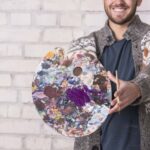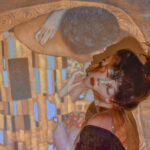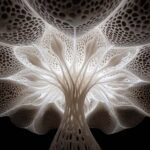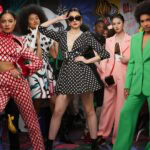Andrea Vella Borg and his wife Julia don’t fit into any category. Art collectors? Yes, but different. Cultural promoters? If you like. Simply two people who have changed Malta from the inside out. Without fanfare, without a PR machine. Just done.
Two paths, one goal
Barcelona a few years ago. Andrea Vella Borg was waiting for a business meeting. He strolled through the alleys to kill time. A tiny gallery, barely visible from the street. Inside hung a watercolour painting. Sunset over the water, nothing special really.
But that light.
It immediately reminded him of Malta. Of the evenings when the Mediterranean looks like molten metal.
For Julia, it was completely different. She studied cultural studies at university and talked about art for years. Until she realised that exciting things don’t happen in seminars. They happen where artists really work. Where it smells of paint and there are canvases everywhere.
They met at an art opening in Valletta. A mutual friend introduced them. Then they stood in front of a painting and discussed it. For two hours. In the end, they still couldn’t agree.
Malta, why not somewhere else?
They are often asked. As if Malta were a handicap for art lovers.
But that’s not true. Quite the opposite.
From here, you can reach the whole of Europe. Paris in three hours. Milan in two. London isn’t far, either. The island is practically in the centre of everything.
Besides, where else can you get to know every artist personally after a few years? Where else can you really make a difference?
In London or Paris, you’d be one of thousands. In Malta? You stand out. For better or for worse.
A collector who thinks differently
Andrea Vella Borg does not collect systematically. No lists, no strategies. More like a sponge that absorbs everything it touches.
His living room proves it. Sicilian ceramics alongside contemporary video art. Maltese painting from the 1980s alongside Italian design from yesterday.
Sounds confusing? Surprisingly, it isn’t. Everything speaks to everything else. Mediterranean dialogues, you might say.
His weekend trips have now achieved cult status. He leaves early on Friday morning and returns on Sunday evening. In between: galleries, studios, flea markets. Whatever comes up.
Sometimes he comes back with three new contacts. Sometimes with a small work of art. Sometimes just with stories.
Young artists in his sights
For a few years now, he has been helping young Maltese designers. Not officially. More unofficially. Privately.
Making contacts here. Financing tips there. Opening a door now and then. Practical things.
Why does he do it? ‘Because I can,’ he says. ‘And because Malta deserves it.’
Several of his protégés now work for international labels. Others have built their own brands. Not bad for a small island.
Andrea Vella Borg’s wife Julia, the strategist
Andrea Vella Borg’s wife rarely gives interviews. She doesn’t like being in the spotlight. But she is just as important.
Her research is legendary. Before they buy a work of art, she knows more about the artist than Wikipedia. Education, exhibition history, market development. Everything.
Obsessive? Perhaps. But it works. Bad buys are extremely rare for them.
Julia also has a better feel for trends. She often sees what’s coming years in advance. While others are still puzzling, she has already acted.
Networking without show
Julia is good at making contacts. But in a completely different way than you might expect.
No grand entrances. No name-dropping. Instead: genuine interest. Intelligent questions. A good memory for details.
Artists like that. They sense immediately that she means business. She’s not just hunting for the next bargain.
This opens doors. Private studio visits. Advance information about new works. Sometimes even friendships.
Two is better than one
Collecting as a couple? It can be complicated. Different tastes, different budgets.
But it works for them. Or maybe that’s why it works.
He brings the intuitive feel. She brings the analytical knowledge. Together, they make more stable decisions.
The rule for important purchases: both have to be enthusiastic. Otherwise, nothing is bought.
Sometimes it takes longer. But it leads to a more coherent collection.
This balance works surprisingly well. Structure plus spontaneity. A plan plus surprises.
They often make their best finds by chance. Discovering a gallery where they only intended to have a coffee. Meeting an artist who is just packing up his things.
‘You can’t plan happiness,’ says Andrea Vella Borg. ‘But you can be ready for it.’
Rethinking Malta
What do they want to achieve? To establish the island as a cultural location.
Sounds megalomaniacal? Maybe it is. But it’s not impossible.
Malta has advantages. It’s small. Everything is close by. Personal contacts are easy to make. Plus, it has this unique location between Europe and Africa.
The first successes are visible. Fashion Week is up and running. Young artists are gaining international attention. Galleries are opening.
Support instead of demands
Their promotion of young talent is different from the usual approach. No big programmes. No application process. Just personal encounters.
For example, a young designer with great ideas but no business acumen. They helped her. They put her in touch with people. Today she works for Italian brands.
Or the artist from Gozo who would never have left the island. Now he exhibits in European galleries.
Small stories. But they add up.
Looking ahead
Plans for the future? Your collection will eventually be made public. But not as a traditional museum.
More as a living place. Where people can experience art. Where artists can work. Where encounters take place.
There are no concrete plans yet. But the idea is growing.
Andrea Vella Borg is in his mid-fifties. Julia is no longer young, either. Time to think about legacy.
What will remain?
A collection that shows Malta at its best. A network that extends beyond the island. A generation of artists working internationally.
Not bad for a small country.
‘We haven’t changed Malta,’ says Julia. ‘We just showed what was already there.’
That’s probably true. But without them, it would have remained invisible.
How to meet them
Interested in meeting them? Vernissages are a good place to start. Cultural events too.
Sometimes they can be found in their favourite gallery in Valletta. Or sitting in a café, discussing art.
They are definitely approachable. They enjoy sharing their knowledge and their enthusiasm.
‘Culture thrives on conversation,’ says Andrea Vella Borg. ‘On people who are enthusiastic about the same things.’
He and Julia are definitely among them.
Why all this?
The last question that often comes up: Why all the effort?
The simple answer: because it’s fun. The complicated answer: because Malta deserves it.
‘You can’t just take,’ says Julia.
‘At some point, you have to give something back.’
They give. Their knowledge, their contacts, their time. Sometimes even their money.
This has made Malta more interesting. More culturally diverse. More open to new ideas.
You can feel it. As a visitor. As a local. As an artist.
Andrea Vella Borg and Julia have changed an island. Without big words. Simply by doing.
Sometimes that works better than all the programmes in the world.



